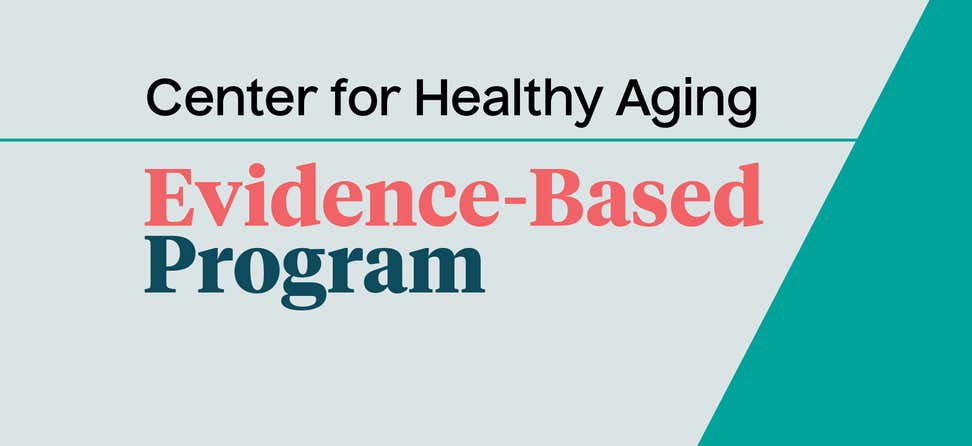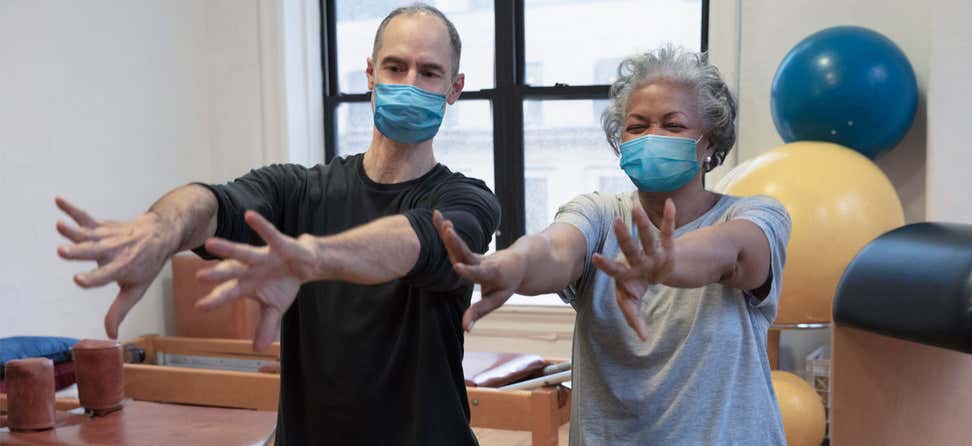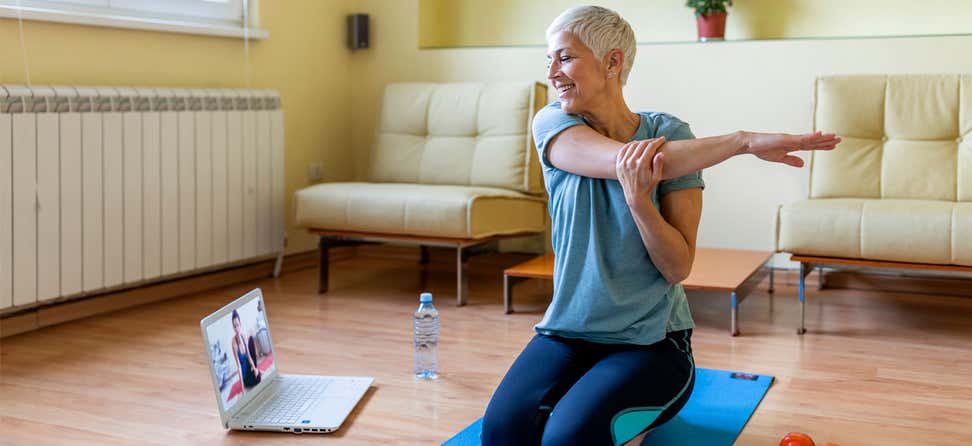Key Takeaways
Connect older adults with a personal health and wellness coach to improve physical, emotional, and social well-being.
Enhance®Wellness uses motivational interviewing techniques and validated assessment tools to guide health action plan creation and accountability.
Enhance®Wellness (EW) is an evidence-based program that connects participants with a personal health and wellness coach to improve physical, emotional, and social well-being. Based on the Chronic Care Model, EW’s participant-centered approach uses motivational interviewing techniques and validated assessment tools in fourteen domains to guide health action plan creation and accountability. Using problem-solving strategies, participants clarify goals, responsibilities, and activities as they work toward health-related behavioral change. This program works well as a hub to refer to other health promotion interventions and community resources.
Additional topics include alcohol use, exercise, fatigue, health self-management, quality of life, sleep, smoking, caregiver support, and social activity.
Note: Track health promotion program guidance during COVID-19 regularly for updates to program implementation and training options. Programs traditionally implemented in-person may be temporarily allowable by telephone or online.
- Target audience: Adults aging with disability, and older adults with one or more chronic conditions, excluding dementia.
- Health outcomes:
- Decrease in Inpatient Hospital Days: The number of hospitalized participants increased by 69% among the control group and decreased by 38% in the intervention group.
- Decrease in Psychoactive Drug Use: The original randomized control trial results showed a 35 percent decrease in psychoactive drug use.
- Decrease in Inactivity and Restricted Activity Days: Fewer participants were physically inactive (15.8% vs 38.6% in control group) and fewer experienced restricted activity days (35% vs 48% in control group).
- Decrease in Depression and Nutritional Risk: Fewer participants were depressed (8.8% vs 15.9% in control group) or at high nutritional risk (24.3% vs 44.1% in control group).
- Delivered by: Coach, trained care consultant, nurse, registered dietitian, social worker/mental health therapist, community health worker
- Program type: Individual
- Format: In-person at home, in-person in community, telephone, online (video conference)
- Length: Six months
- Training: In-person or via remote delivery
- Professional required: The traditional model is delivered by a social worker or registered nurse. Updated 2017 material supports delivery by a Community Health Worker with a background in motivational interviewing.
- Accessibility adaptations available: Yes
- Cultural adaptations available: Yes
- Available in languages other than English: Training available in Spanish; intervention can be administered by bi-lingual EW Coach in any language
- Topic(s):
- Physical Activity
- Substance Use
- Behavioral Health
- Cancer Survivors
- Care Transitions
- Chronic Disease
- Falls Prevention
- Medication Management
- Pain Management
- Additional Resources:
- Contact: projectenhance@soundgenerations.org









